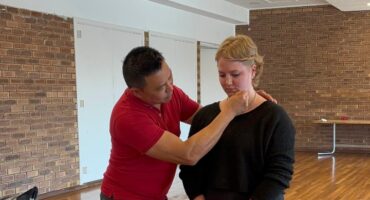Keep your family safe from Covid-19 while travelling
Are you worried about travelling and Covid-19? Use these easy guidelines on how to minimise your coronavirus risk and enjoy your family holiday.

Many families are taking a much-needed short break this coming week. Some of us are travelling to spend time with family or to relax at a holiday destination. While lockdown rules have eased, the threat of COVID-19 is still very much with us.
Here are a few ways you can minimise the risks and keep yourself and your family safe:
Should I cancel my travel plans?
It’s important to consider your own safety and that of your children, but also the possible risks for any elderly or potentially vulnerable loved ones with whom you will be coming into contact. “Whenever people gather, it can create opportunities for the virus to spread and so we should limit our interactions and be meticulous about hand hygiene, social distancing and wearing masks at all times,” says Dr Jolene Pitman, a general practitioner at Medicross Bluff in Durban.
How to travel safely
Dr Pitman has these tips for safe traveling to minimise you and your family’s risk of contracting COVID-19:
- Don’t travel if you, or a member of the family, is ill or has been exposed to someone with COVID-19. Seek medical attention if you or a member of the family is at all unwell, even if the symptoms are mild.
- Consider your transport options, bearing in mind factors including the length of time the journey will take and the number of other passengers you would likely be exposed to. Ensure you have enough hand sanitiser or disinfectant wipes within easy reach at all times, and a few spare clean face masks. Be sure to sanitise your hands and your children’s hands regularly.
- If using public transport, ensure strict social distancing and where possible open windows for good ventilation. Try to plan your journey so that any time spent in airports and bus stations is during off-peak times. If traveling in a private vehicle, try to minimise the number of pitstops you make and pack your own food.
- Avoid crowded and poorly ventilated areas wherever possible and discourage small children from picking up or touching things in public places.
- Remind your children to cover coughs and sneezes with their arm, and set a good example when it comes to all COVID-19 precautions. If children see adults are consistent and diligent in following the rules of prevention, they will be far more likely to adopt these healthy habits themselves. The same prevention principles apply wherever we are, and we cannot ‘take a holiday’ from our new normal of hand hygiene, social distancing, wearing masks, and not touching our faces.
- Monitor the number of confirmed cases of COVID-19, both at home and at your destination. Keep yourself updated on travel restrictions or any testing requirements before and during your trip.
- Before leaving on your holiday, ask whether there is accommodation available for self-quarantining if you or a family member should become exposed to COVID-19 during your stay.
- Stick to self-catering accommodation. If this is not available, opt for take-aways rather than indoor eating venues, or opt for outdoor seating. As always, remember to wash your hands before handling food and eating.
- When traveling with your kids, reinforce the importance of washing hands properly with soap and water regularly for at least the length of time it takes to sing ‘Twinkle Twinkle Little Star’ or approximately 20 seconds.
- Regularly clean and disinfect frequently touched surfaces including keys, door handles, and countertops at your holiday accommodation.
- Be sure to pack enough chronic medications, first-aid provisions, and any over-the-counter medicines that you may need during your travels.
What to do if someone gets sick while on holiday
If you or any of your family members become ill during your trip, seek medical advice early. “There appears to be a disturbing trend where patients who may have contracted COVID-19 are not seeking care early enough for doctors to test them and start treatment early if indicated, but only when their condition has deteriorated to the point where they are facing a medical emergency and need specialised care in hospital,” says Dr Pitman.
Wherever you are in South Africa, the network of Medicross medical and dental centres can take care of your family’s primary healthcare needs either with an in-person or virtual consultation, either telephonically or via a secure online video link. If you have any concerns that the illness could be COVID-19-related, or if you have been in contact with someone with COVID-19, it’s important to phone ahead and bring this information to the attention of the doctor so that the necessary safeguards can be taken to prevent the spread of COVID-19 in the facility.
“Recent advances towards a COVID-19 vaccine are encouraging news, but it will likely be quite some time before they are commonly available. In the meantime, it is our individual and joint responsibility to take all necessary precautions to help prevent the spread of COVID-19 within our communities,” Dr Pitman concludes.




